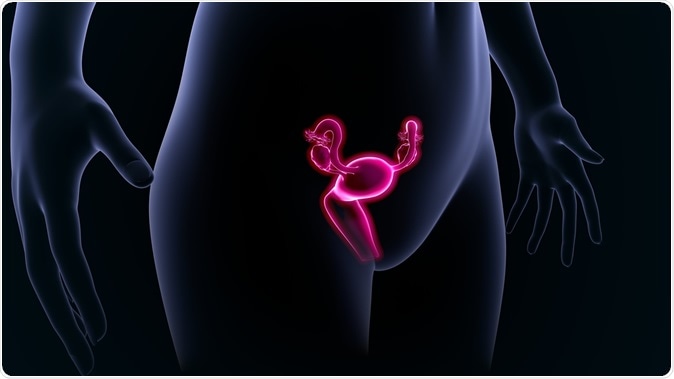Ovaries are female reproductive organs that are responsible for the production of ova or eggs. These are necessary for normal fertilization and development of the fetus. Fertility of a woman can be jeopardized when the ovaries do not function normally. Danish researchers have now successfully engineered artificial ovaries that could help millions of women with infertility related to ovarian disease and cancer therapy.

Image Credit Sciencepics / Shutterstock
The team has developed a “scaffold” that can hold the ova in their early stages and help them develop into the ovarian follicles that are fully functional small sacs filled with fluid containing the eggs. According to author Dr. Susanne Pors, postdoctoral fellow in the Laboratory of Reproductive Biology at the University Hospital of Copenhagen Rigshospitalet this is a newly made bioengineered scaffold and the follicles for the ova that is biological. This scaffold she explained originates from the woman’s own tissues or from donated tissues. She will present the findings of this latest study today (2nd of July 2018) at the 34th Annual Meeting of the European Society of Human Reproduction and Embryology in Barcelona, Spain.
The authors explain that for most women who undergo cancer chemotherapy and radiation therapy preservation of the fertility is a challenge. These intense therapies damage and destroy the ovarian tissues. One of the options of preserving fertility is freezing the eggs after their removal prior to cancer therapy. When she is ready for pregnancy, she can opt for in vitro fertilization methods, they explain. The second method is to remove part of the ovarian tissues before commencement of cancer therapy and freezing it. This stored tissue can later be reimplanted into the body after treatment. This also protects the ovaries from the cancer therapy damage and preserves fertility. This second method is seldom used because of the fear that the removed ovarian tissues might contain cancer cells which may be reintroduced into the patient’s body when the tissues are reimplanted. This new study attempts to use the ovarian tissues outside of the body in the labs rather than risk reintroducing the tissues along with the cancer.
According to Pors and her team, if the ovarian tissues can be bioengineered onto a scaffold and seeded with previously frozen early-stage follicles, these could go on to develop naturally and could help in bringing the fertility back in the patient without the risk of her getting possible cancer cells reintroduced within her body.
As a first step, the team used donated ovarian tissues to remove all the possible cancer cells from within them using a three-day chemical treatment. The follicles that remain said Pors are non-cancerous and this is because they develop during fetal live of a woman. The follicles, she said are covered with a basal membrane that does not allow the cancer cells to enter. What remained after the three day period was a “decellularized scaffold”. It contained proteins and collagens that can hold up the cells. This scaffold was then seeded with early-stage follicles. When provided with nutrients and appropriate atmosphere, these follicles began to grow and mature into fully developed ovarian follicles.
In the next step of the experiment, the team implanted this decellularized and seeded scaffold into 20 experimental mice. This too helped in the development of the follicles. A quarter of the follicles survived for up to three weeks within the mice, the authors write. Pors and her co-authors concluded, “This is the first time that isolated human follicles have survived in a decellularized human scaffold.”
Researchers are hopeful that this could be a new avenue in fertility prevention and there would be no risk of cancer recurrence with this method. More studies are however necessary to establish this experimental procedure, they add.